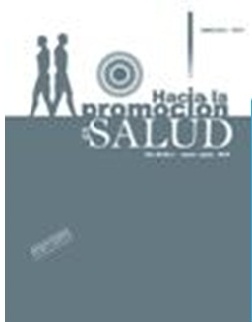Authors
Abstract
Introduction: This research carries out the second part of the Final Report with the results of the participants expressions regarding the imaginary and everyday compromises to care ethics and bioethics in order to support the quality of life as a condition to reach an integral human development of the students from the Faculty of Juridical and Social Sciences at the Universidadde Caldas. It also interprets the imaginaries and constructs the sense of bioethics as a consciously experienced care ethics, and to rethink its contribution to human development. Objectives: In order to reach the objectives, the data were interpreted from the pragmatic level, meaning, knowing how to to be able to accomplish something; the theoretical level to locate the the sense of the concepts within the context. Methodology: The qualitative method was used in the research by means of a focus group with open interviews . Work unit: students from the Social Work Program and Masters Program in Culture and Drugs; analysis unit: texts produced with the transcript of responses from the participants on the research topics raised. Results: The results lead to the reflexive sense that the students give to the elements that they consider the most relevant to assume bioethics as a care ethics in achieving an integral human development.
References
Paulys Real Encyclopediae Der Classiscchen Altertum Swissenschaft. Vol. 19, Stuttgart; 1918. p. 628-651.
Boisier S. Desarrollo local ¿De qué estamos hablando? En: Vásquez Baquero y O. Madoery, compiladores. Transformaciones globales, instituciones y políticas de desarrollo local. Buenos Aires: Homo Sapiens ediciones; 2001. p. 17.
Arendt H. La Condición humana. Barcelona: Paidós; 1993.
Sen A. Desarrollo y libertad. Barcelona: Planeta; 2000.
Boladeras C. M. Calidad de vida y principios bioéticos. En: Bioética y Calidad de Vida. Santafé de Bogotá: El Bosque; 2000. p. 21-24.
García G. El Concepto biológico de vida: El mecanismo y el vitalismo. En: El horizonte Bioético de las Ciencias. Santafé de Bogotá: La Ceja; 1996. p. 147-155.
Piwonka A, Bustos I, Gaete E, Urrutia M. Saber bien para hacer bien. En: Bioética temas y perspectivas. Washington D.C., Organización Panamericana de la Salud (OPS); 1990. p. 50.
Gracia D. Fundamentos de Bioética. Madrid: Eudema; 1989.
Cely Galindo G. La Naturaleza como fuente de sentido vital. En: El horizonte Bioético de las Ciencias. Santafé de Bogotá: La Ceja, 1996. p. 65.
Nussbaum M. Capacidades como titulaciones fundamentales: Sen y la justicia social. Bogotá, Universidad Externado de Colombia, Centro de Investigaciones en Filosofía y Derecho; 2005.
Hernández A. La teoría ética de Amartya Sen. Bogotá: Siglo del Hombre Editores. Universidad de los Andes; 2006.
Meza J A y otros. La educación desde las éticas del cuidado y la compasión. Bogotá: Pontificia Universidad Javeriana; 2005.
Popkewitz TS, Brennan M. El desafío de Foucault, discurso, conocimiento y poder en la educación. Barcelona: Corredor; 2000.
Borrero Cabal A. En: Bioética y Universidad, Santafé de Bogotá: La Ceja; 1997. p. 83.


 PDF (Español)
PDF (Español)
 FLIP
FLIP






















